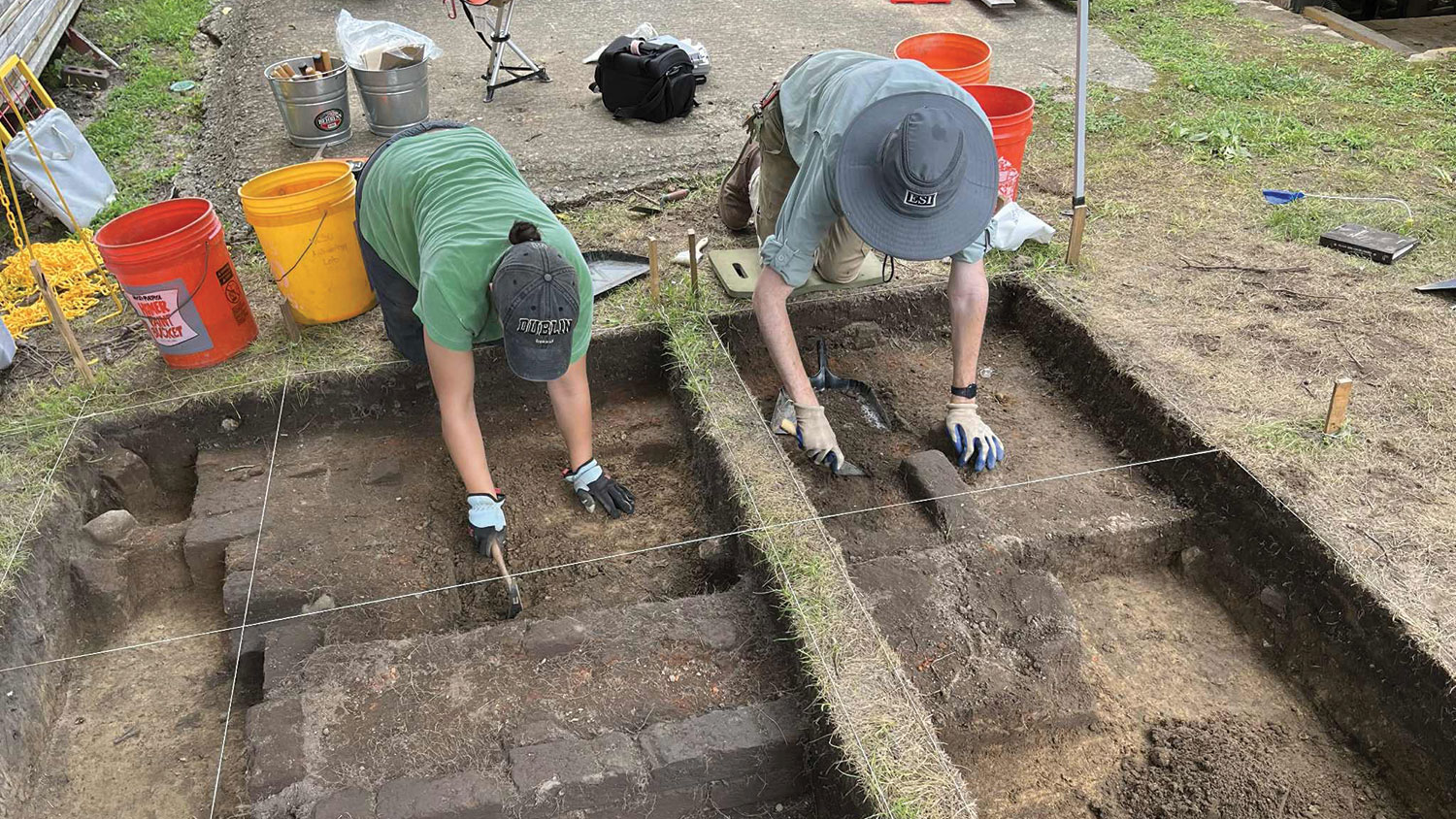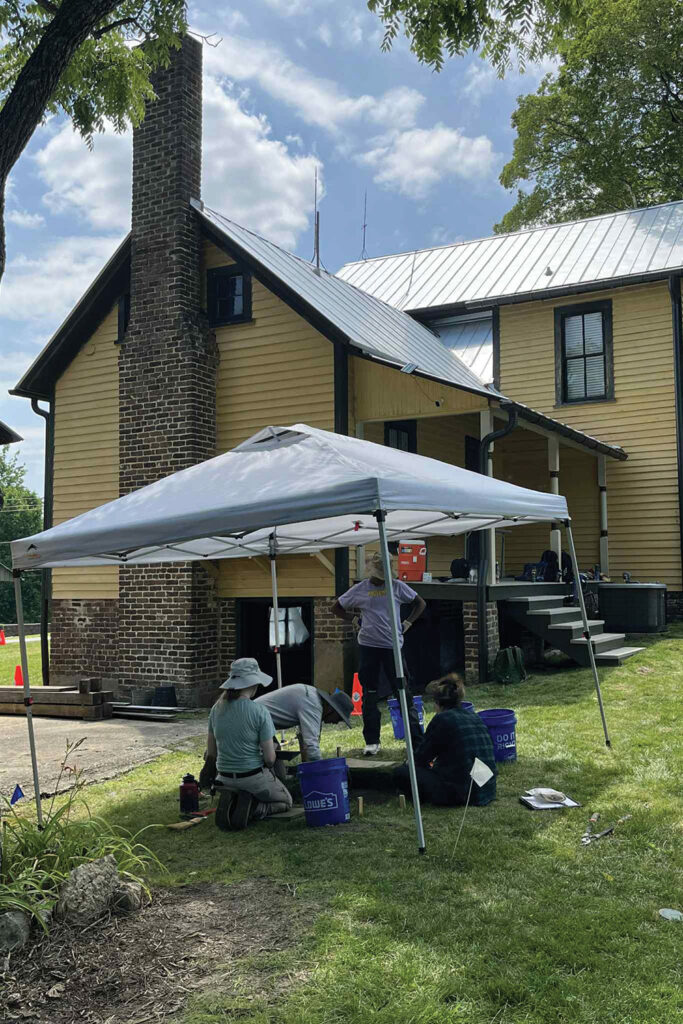A Deeper Dig
An anthropology graduate student leads an archaeological dig at historic Glencoe Mill Village in Burlington, N.C.

Archaeologist Travis Corwin likens his trade to discovering a great book on a library shelf. “Archaeology reveals the way that people express their lives. We express it through material culture,” he says. So with any dig, he’s always excited to see what stories the artifacts have to tell.
“Archaeology reveals the way that people express their lives. We express it through material culture.”
— Travis Corwin, Archaeologist
Corwin, a second-year anthropology graduate student, has done surveys throughout the Southeast, but his latest unearthed story is at the Glencoe Mill Village Historic District in Burlington, N.C., where he spent about two months this past summer leading a group of undergraduates on the first archaeological survey of the historic site. Located on the Haw River, the site reveals the story of a textile mill community that thrived from the 1880s until it closed in 1954, and of its company village.

The dig itself was situated around a 2-meter-by-3-meter piece of land located at what would have been the mill superintendent’s home. The neighboring Textile Heritage Museum owns that house today. Corwin dug 70 centimeters below the surface to try to locate where trash pits or privies would have been in the property’s backyard.
While the team didn’t locate the trash pits, they did find the foundation of a brick fireplace and other construction that appears to have been an outdoor kitchen. They also found some early 20th-century medicine bottles and some cultural ephemera, like a bicycle license plate from McDonald’s, leftover from people who continued to live in the village’s houses in the mid-to-late 20th century.
The village’s houses, now renovated, have been part of a restoration project for the last three decades with the nonprofit Preservation North Carolina. Corwin says those homes’ current residents visited the dig frequently and are eager to see all the items found, which he’ll write about in his master’s thesis this coming spring.
“Excavation,” he says, “is just the first part of a long process of archaeology.”
Tell Us What You Think
Do you have a personal connection to this story? Did it spark a memory? Want to share your thoughts? Send us a letter, and we may include it in an upcoming issue of NC State magazine.


